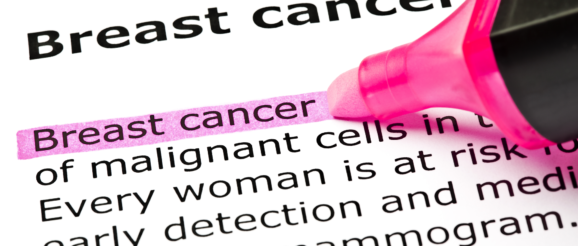UC Davis Programs Aim to Improve Breast Cancer Health Equity | Healthcare Innovation

Researchers at UC Davis are launching two programs aimed at improving breast cancer health equity.
A story on the UC Davis website notes that “breast cancer rates in Latinas are lower overall than in non-Hispanic white women, but Latinas are often diagnosed at later stages and are about 30 percent more likely to die from the disease. Latinas also are less likely to seek genetic counseling for breast cancer as compared to non-Hispanic white women, and their rate of mammography screening is far lower.”
Researchers at UC Davis have received two $750,000 grants from biopharmaceutical company Gilead Sciences.
Laura Fejerman, associate director of the Comprehensive Cancer Center’s Office of Community Outreach and Engagement (COE), co-leads the cancer center’s Women’s Cancer Care and Research program (WeCARE), which received one of the $750,000 grants from Gilead Sciences.
Fejerman and her team will use the grant to partner with The Latino Cancer Institute and its founder Ysabel Duron to launch a new breast cancer outreach program. They’ll do so at two Federally Qualified Health Centers (FQHC) in California: WellSpace in Sacramento and San Ysidro Health in San Diego.
The UC Davis story notes that Duron has been working for many years to effect policy changes around barriers to cancer prevention and care in Latinas. She is co-principal investigator of the grant program along with Fejerman and Julie Dang, COE executive director.
“Low-income Latinas are getting left behind because they are not aware of the role genes play in breast cancer,” Fejerman said in a statement. “The answer is to integrate health educators, who speak Spanish and are community members, to educate Latinas and help them navigate breast cancer screening and care, if cancer is diagnosed.”
These lay health workers, empowered and trusted to connect community members with information and resources, are called promotores de salud. They are part of the cancer center’s new program called Tu Historia Cuenta (your story matters) initiated in 2022. The new funding from Gilead will expand the program by hiring promotoras as staff at the FQHC nonprofit clinics that care for medically underserved patients.
This community-clinic-academic partnership will lay the groundwork for a model to scale up across the state, Fejerman added.
The second Gilead Sciences grant will be one of the first administered by the Center for Advancing Cancer Health Equity (CACHE). The center was established in the spring of 2022 to achieve health equity for all regardless of race, ethnicity or socioeconomic background.
CACHE will use its $750,000 to lead a new project to train bilingual and bicultural promotores from underserved and marginalized Latino communities through what it’s calling the “embajadoras project.” Promotores trained through the pilot program will become Spanish-speaking health outreach ambassadors in the 19 counties that the cancer center serves, enabling community members to better access cancer education, prevention and care.
The embajadoras project is a partnership between CACHE, Woodland Community College and the Health Education Council (HEC), a Sacramento nonprofit organization that works to improve health outcomes in underserved neighborhoods.
With the cancer center’s support, Woodland Community College will develop its first accredited bilingual and bicultural promotores curriculum. UC Davis says the course will bridge an important educational gap and will encompass job skills training. HEC will further train promotores who have completed their accredited promotores training at Woodland Community College.
